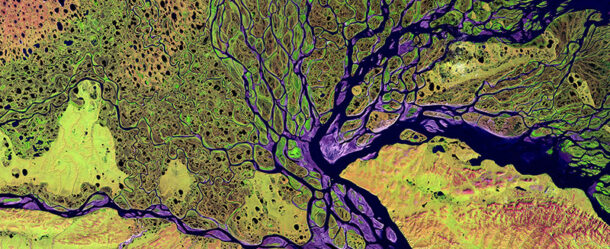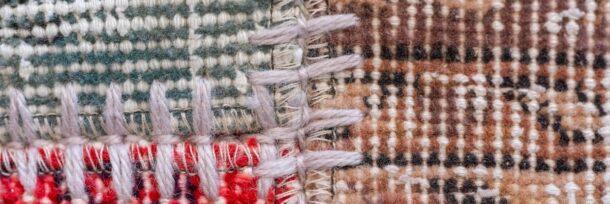
Adam is a performer, Diversity and Inclusion consultant, and co-founder of trans inclusion consultancy Every Gender. His work started in the performing arts industry, where he used his training as an actor, writer and director to uplift underrepresented voices in theatre and film. He worked as a Clown Doctor in retirement villages, performed in Neurodiversity education workshops with Mind Over Manner, was a founding whānau member of Te Pou Theatre, and served as intern director in Emmy-award-winning web series Rūrangi. He’s also a dog parent and amateur mushroom forager.
What is your role at ICAAD?
I’m Adam (he/they), the new Communications and Research Specialist at ICAAD. My primary role is to listen intently to the ICAAD team and our partners as they discuss the incredible work they’re engaged in, then distill and express the content most relevant to you – our supporters.
At the moment I’m working closely with the ICAAD team to craft a high-level communications strategy, which is a puzzle that has me outrageously excited. The process affords me the opportunity to dig deep into ICAAD’s whakapapa (lineage), our vision for the future, and the portfolio of work that demonstrates our commitment to purpose and capacity for impact.
In the coming months, much of the copy you’ll encounter in our newsletters, blogs and social media will be written by me. I would love to hear from you about how it’s landing, and what you’re curious to know next. Feel free to reach out any time at adam@icaad.ngo. It would be a pleasure to hear your thoughts.
What do you bring to this role, and what drew you to this opportunity?
Everyone grows up trying to bridge the gaps between ourselves, and the world and people we’re surrounded with. For me, the size of those gaps – and the terrain that constituted them – changed more than it did for most of the other people I knew.
I was born in a retirement home in the deep south of the U.S. and began my schooling as the only white child in public school. One of the earliest social dynamics I was made cognizant of was race relations, although the self-awareness of my positionality within that dynamic didn’t come until much later – aided by my immersion in Te Ao Māori.
I spent several years in Cambodia as a young child, before finally settling in a rural dairy milking town in Taranaki, Aotearoa/New Zealand. Needless to say this upbringing afforded me an unusually broad perspective on the disparities of the human experience across the globe.
As an adult I trained as an actor, and worked as a performer, writer and director throughout my early career. Most of my work consisted of projects with a social development bent. The shows I was a part of always surfaced experiences of those from minority or marginalized backgrounds, in particular queer and trans experiences and those with living experience of mental distress and illness. My favorite job ever was working as a medical clown in retirement villages, improving the wellbeing of our friends who are near the end of life.
I began working in the Diversity and Inclusion space with the advent of COVID19. I found that my ability to locate, surface and celebrate shared vulnerability could unlock powerful changes in workplace culture. As a person of transgender experience myself, employment equity for marginalized people is a cause that sits very close to my heart. My movement through that sector – the insights I gained, relationships that formed and skills that came to the fore – motivated me to start my own initiative, alongside one of my longest and closest collaborators. Every Gender brings transgender lived experiences into workplace DEIB decision-making conversations, improving economic outcomes for gender minorities. That project has been my pride and joy for the past two years, and still constitutes the other half of my work life.
And what drew me to this opportunity with ICAAD?
I saw good people doing amazing work, and I wanted to help. The way that I help is by making connections.
I can’t wait to meet some of you, and learn about what you’re doing to improve the landscape of human rights in this big, scary, modern world.
I also can’t wait to talk to you about what these mad cats at ICAAD are up to. It’s absolutely wild. I can’t believe that I get to throw my weight behind a group of people this dedicated, networked, big-hearted and scrappy.
What are some of the challenges you want to address as an advocate?
I’ve been doing a lot of research on the problems with human listening. The body of evidence outlining unconscious bias, our propensity for defensiveness and our tendency to double-down on our pre-constructed ideas in the face of evidence disproving them, are very worrying.
From the seemingly trivial ‘fun facts,’ like the curious phenomenon where holding a pen between our teeth predisposes us to agree with others due to the forced smile posture, to the intricate physiological reactions when our beliefs face direct challenges – like the reduction of blood flow to the pre-frontal cortex, hindering our biological capacity to onboard new information – it is clear that un-learning entrenched beliefs to make room for something new, especially when stakes are high, is extremely difficult.
I center my advocacy efforts in the communications space because I want to make sure that, when something important is being said, it’s framed in a way that is most likely to be heard. Too often we focus on ‘amplifying voices’ without acknowledging that, if no one is listening, we will just keep shouting at each other across the impermeable barrier of defensiveness and angst.
The problems humanity is facing are far too important to allow that kind of carry-on to dominate our discourse. We really need each other right now.
What is an important lesson that you’d like to share with other human rights advocates?
My experiences over the course of my gender transition have afforded me an amazing series of insights. The most profound of them center around the differences in the way the world responds to me now that I am read as a man, vs when I was read as a woman. Most of those differences are difficult to articulate, but there is one that I refer to often.
My experience of walking down the street at night has become almost unrecognizable. Before, I was hypervigilant – observing how closely I was being followed, noticing other ‘women’ or potential allies nearby, whether there were places where villains could be hiding, behind skip bins or in darkened alleyways. Wondering if my phone was charged. Calculating the remaining distance to my car.
Now, I walk to my car in relative internal silence. A large man can walk directly towards me on the footpath, and I nod in his direction without much thought.
Without experiencing both, it would be very difficult for me to imagine that someone could possibly be having such a different experience of the same series of events.
The lesson here is – for those in experiences of power – it is nearly impossible to comprehend the labour being undertaken by those who are marginalized, without listening very closely to their lived experiences.
What this means is that, when working to advocate for the rights of others, we must always position ourselves behind the ones we are advocating for. We must operate under their leadership; because only they will know, with certainty, the truth of their experiences and needs. To act on someone’s behalf can be done with confidence, but only when we know that we have understood – as clearly as we can – what they are asking us to do.


